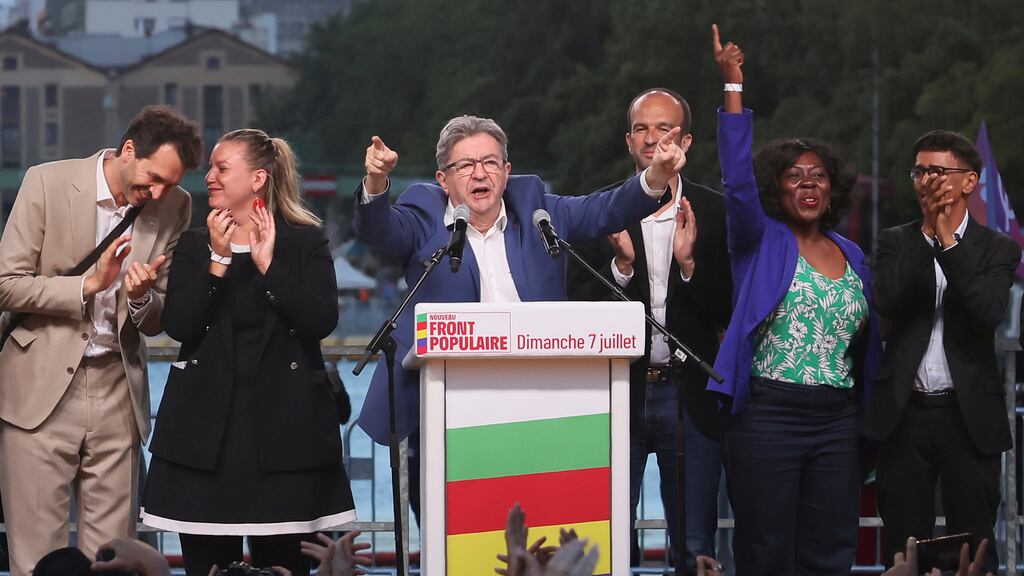Everything was set for a historic victory for National Rally, Marine Le Pen’s far-right party, which after the second round of parliamentary elections, aimed to place the young Jordan Bardella as prime minister in cohabitation with the center president Emmanuel Macron. However, the initial polls showed a completely opposite result, with a victory for a left-wing coalition, a slight increase for Macron’s party compared to the first round, and RN (French initials for Rassemblement National) coming in third place.
Now France enters a period of great political uncertainty, as the left-wing coalition, called the New Popular Front, will also not reach the 289 seats needed to form a government, so intense negotiations with other left-wing parties and likely also with Macron's Ensemble are ahead.
PUBLICIDAD
What does seem clear is that the far right will not form a government, so the so-called "French cordon sanitaire" was relatively successful.
What are the results of the French runoff election?
The seat projections from exit polls, which in Europe are usually reliable as demonstrated last Thursday in the United Kingdom, show between 188-199 seats for New Popular Front (left); 164-169 for Ensemble (center); 135-143 for National Rally (far-right); 63 for Republicans and other center-right groups, and 10 seats for other left-wing groups.
This left-wing coalition was unexpectedly formed before the elections in France, and already in the first round of the legislative elections, it surprised by finishing second, behind the National Rally but ahead of Macron's party.
Reactions in France to the first polls
Macron's office said that he will "wait" to make decisions about a new government.
On the other hand, Jordan Bardella, the president of the far-right party National Rally, claimed to have achieved historic accomplishments and blamed Macron for creating "uncertainty and instability."
Marine Le Pen, in turn, said that these results "lay the groundwork for future victory" and that "this is a victory in delay", in reference to the 2027 presidential elections.
The leftist Jean-Luc Mélenchon, former leader of La France Insoumise, described the projections as a “immense relief for the majority of the people in our country.”
What's next for France? Great uncertainty
For now, Emmanuel Macron has lost control of the Parliament, which has the authority to appoint the Prime Minister, the head of government.
France has not had a "cohabitation" since 2002, with a president and a prime minister of different political colors, back then with the center-right Jacques Chirac and the socialist Lionel Jospin.
Prime Minister Gabriel Attal said he plans to resign, while Macron's office stated that the president "will wait for the New National Assembly to organize" before making decisions about his government. This means that Macron could reject Attal's resignation.
France's leap into the political unknown could not come at a worse time: with the opening of the Paris Olympics in less than three weeks, the country will have to deal with internal instability while the world's eyes are on it.
Prolonged instability could increase suggestions from his opponents that Macron should shorten his second and final term. The French Constitution prevents him from dissolving Parliament again in the next 12 months, unless it is a route to possibly give France greater clarity.
